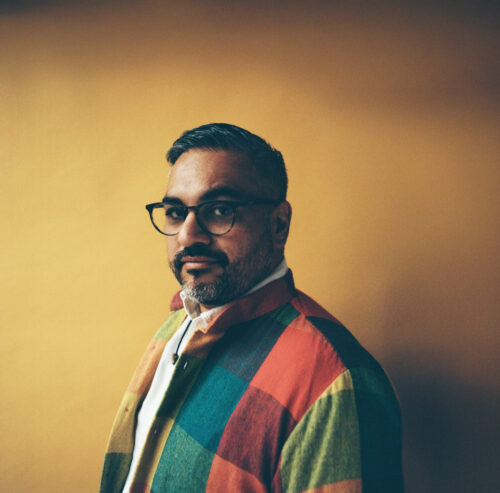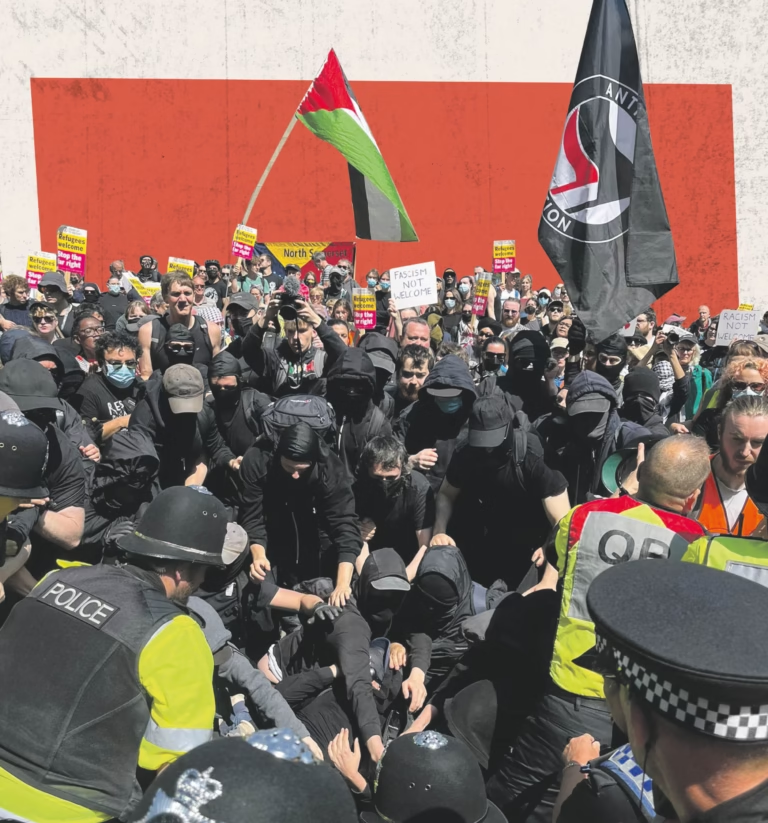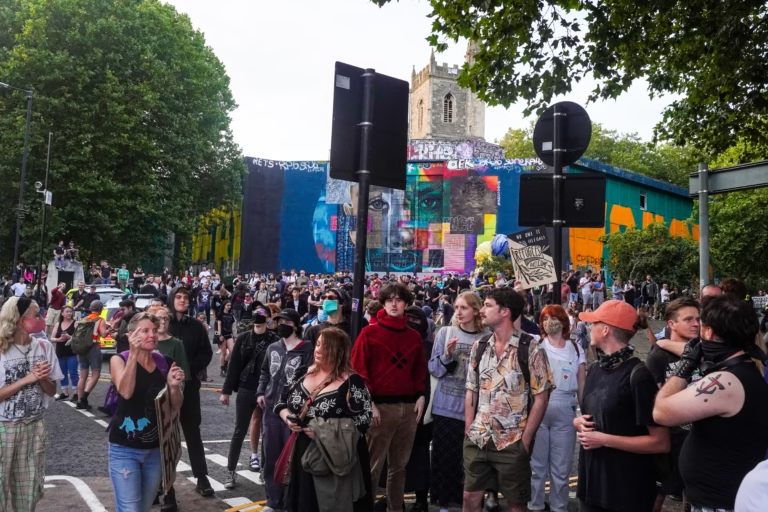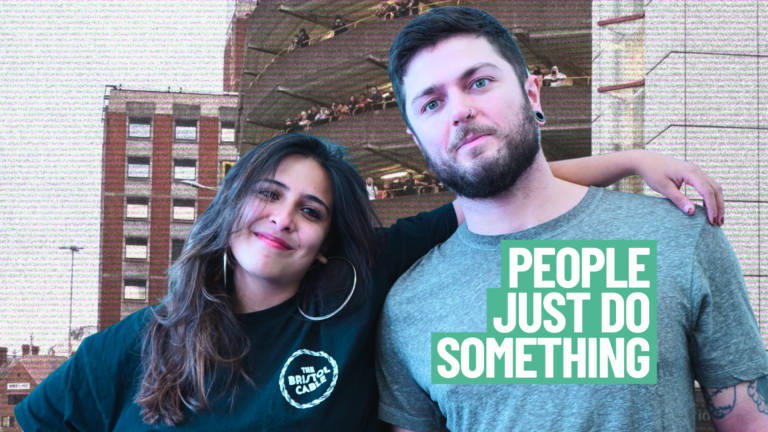When we’re deported, will mum be allowed to visit?
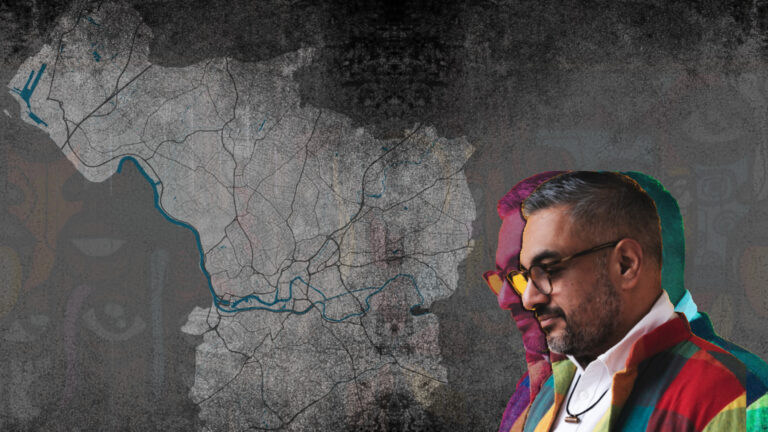
My kids recently asked my partner and me a troubling question. “When we are deported and separated from our [white] mum, would she still be allowed to visit us?”
They asked this when I returned from the UKIP demonstration in the city centre last May. I had gone out to protest against the far right and returned shaken up, having just got into a heated row with a man walking through our bloc, who stopped to talk to me and immediately declared that immigration had ruined Britain.
My rebuttal, that immigration was a benefit to society (woah there, commie, stop spreading such hateful ideas) and that refugees were welcome (now there, Citizen Smith, don’t go too far), fell on deaf ears. It was clearly a waste of time trying to reason with him because his reaction was to swing at me and spit at me, and then run when I held my ground, with people gathering behind me.
My kids, meanwhile, were freaking out. Explaining to them exactly what is happening on the streets of Bristol, and on the streets of Britain, has been hard. There have been protests like this almost every weekend. One of those days was my daughter’s birthday. Dutifully, though, I showed up once again to show the fash that they’re never welcome in Bristol.
There is a strange tension in our house. My family are questioning what it means to be British, to live comfortably in a city that is home, in a country that is home, when, a few streets away, St George’s crosses are hanging outside people’s bedroom windows. A flag that may be your flag and you may want to stand by it, or reclaim it from racists, and that’s fine, but it’s a flag that has always filled me with fear.
Part of the project of being a parent is, I suppose, raising your kids to be joyful and curious while also preparing them for what the world is actually like. The constant struggle I have is keeping my jadedness, my cynicism, my politics out of the conversation so I can attempt to give them the space to figure out where they stand.
When my daughter was six, she learned about the Bristol Bus Boycott at school. She didn’t quite get it, so she asked me to explain it to her. I realised I’d have to first explain racism to her. At the time, she didn’t understand my explanation, rejected it, said it sounded stupid. It took me a second not to project onto her why I thought people might be racist. Instead, I had to see the world through her eyes — and she was right. Racism is stupid. It doesn’t make any fucking sense.
It’s the same with the flags. Because this current trend of hanging flags on lampposts and spraypainting them onto roundabouts (which is surely damaging council property — yo, Bristol council, where you at? Don’t get caught sleeping while the country slides into fascism) is terrifying.
Part of the project of being a parent is raising your kids to be joyful and curious while also preparing them for what the world is actually like.
I’ve heard people defend it as simple pride in your country. But come on, dude, why are you lying to yourself? This proliferation of nonconsensual flag-raising isn’t about pride. It’s a dividing line: an us versus them. An England for the English. It’s a clever tactic. Criticise the act and you appear unpatriotic, or, as a person of colour, unintegrated. Say you feel threatened or uncomfortable, and hey, you know where the door is.
Months after my daughter asked about separation and deportation, my kids’ fears bubbled up to the surface again. We were all sitting in a car with a broken air conditioning system, condensation steaming up the windows, driving in desperate need of a place to stop for lunch on a wet Sunday.
My eldest daughter asked us what ‘far right’ means, while the youngest kept pointing out flag after flag on the street outside. My partner and I scrabbled around for explanations that felt appropriate for kids. Because I don’t want them to know that I’ve started self-defence training, that I want them to do the same, that the podcasts stacked up on my feed are unlistened to because I don’t want to wear headphones in public. My city feels small, and the citadel of streets where I feel comfortable roaming even smaller.
What I do want them to know is that they belong. No one is going to separate our family, and flags are not the same as ideals and principles. If one were to look at what ‘British values’ even are — and I’ve looked them up — they are incredibly generic: democracy, the rule of law, individual liberty, mutual respect and tolerance of those with different faiths and beliefs.
The people putting up flags all over Bristol are not doing so because of mutual respect and tolerance. If they were, they might realise that not everyone wants them up.
The thing I learned from that conversation in the car is that there are things to be scared of, and there are no easy answers to their difficult questions. I know that with every response I give, I change the way my kids see the world, and I don’t want them to be any less joyful, curious and free than they are. I will keep fighting for that.
Our kids are smart. They see the world for what it is, and they’re intelligent enough to handle difficult subjects. So let’s not be afraid of talking to them about what’s going on. We don’t have to have the answers. But my god, we need to have the conversations.
Independent. Investigative. Indispensable.
Investigative journalism strengthens democracy – it’s a necessity, not a luxury.
The Cable is Bristol’s independent, investigative newsroom. Owned and steered by more than 2,600 members, we produce award-winning journalism that digs deep into what’s happening in Bristol.
We are on a mission to become sustainable, and to do that we need more members. Will you help us get there?
Join the Cable today

